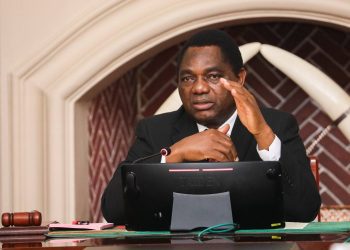24.11.2024
The clock at the COP29 kept ticking normally but the negotiators from the 198 countries failed to secure a desirable climate finance deal to enable greater funding for developing nations to implement climate action initiatives, said Dr. Kelvin Kamayoyo, Zambian Economist and Scholar. Arguably, climate finance should not be viewed as a “charity” or “gift” but as a “responsibility” by the wealthy nations towards rewarding the developing nations to combat climate change. During the Conference of the Parties (COP) 29, the Developing countries attempted to: negotiate for scaling up climate finance from the current $100 billion a year to trillions of dollars per year starting 2025; restore trust on issues of climate finance; provide specifications for concessional and grants-based finance; while developed nations pledged funding estimated to $250/$300 billion per year to begin disbursing by 2035; and proposed an inclusion of more fund contributors especially the richer developing nations.
The continent of Africa is an ambitious victim of adverse effects of involuntary climate change induced events ranging from food insecurity, poverty, water crisis to health pandemics.The continent of Africa and other developing nations need increased climate finance, if they are to build sustainable economic resilience and keep pace with the desired growth trajectory ahead of the 2030 sustainable development goals. Particularly, Africa is one of the regions that have significantly mainstreamed climate change resilience strategies inline with the 2015 Paris Agreement but the unpleasant reality is the chronic climate financing gap.
The climate action equation ought to be perceived as a summation of sufficient climate finance with positive association of political will as a coefficient plus mitigation or resilience strategies towards safe planet earth. The failure to meet the target of setting a new global climate finance goal during the COP 29 implies that the world is indifferent about the issue and does not regard climate action as a global emergency. This year’s COP 29 was held in Baku, Azerbaijan under the theme:”Investing in a Livable Planet for All.”
The climate finance talks have stumbled into a unforeseen deal deadlock and this is likely to push the continent of Developing countries into financing dilemma and awful uncertainties on how to respond to negative climate change externalities. African countries are among the most climate-vulnerable Developing nations and climate finance remains a viable tool for them to effectively implement the identified solutions in order to safeguard the environment and conserve nature. The continent is often a victim of climate induced pandemics such as drought, food insecurity, water crisis, poverty, diseases and economic downturn.
Following the establishment of the Green Climate Fund (GCF), which is a financial mechanism vehicle, during the COP 16 in 2010, the Developed countries are expected to provide financing through a variety of sources in order to promote multilateral efforts towards combating climate change. While the Developing nations including African countries are expected to utilise the climate finance support towards efforts aimed at reducing emissions, vulnerability, and increasing the resilience of humans and ecological systems to the impacts of climate change.
According to National Aeronautics and Space Administration (NASA)’s Climate Science division, the amount of carbon dioxide in Earth’s atmosphere has increased by 50% in the roughly 200 years since the Industrial Revolution began. And that, according to NASA, it has warmed the planet and caused climate change. The earth is currently measuring about 1.2°C warmer than it was in the late 1800s, and emissions continue to rise. Notwithstanding, the major contributors of carbon dioxide emissions in the world today are the Developed and lndustrialised nations namely China, United States, Russia, India and Japan, and African countries are not part of the list.
Climate finance is crucial to boosting the capabilities of African countries to implement priority climate mitigation and adaptation actions. However, the funds under climate finance mechanisms could be sourced through: bilateral or multilateral, public or private, national or international. Therefore, the failure of the COP 29 Climate finance talks signifies multilateral cluster indifference about the impending adverse climate change events and potential humanitarian crisis largely among the Developing countries.
While the future of a health planet earth lies in being responsible, trustworthy, global partnerships and creating opportunities for all, the failure to reach a mutually beneficial end-game in climate finance talks would only yield confidence erosion in the global climate action agenda. Amidst the unrelenting climate change events and multilateral climate finance indifference, the Developing countries must start taking charge of their own affairs and create new opportunities for generating domestic revenues or mobilising funds to support scaling up of climate action interventions. The Developing countries may achieve this by rethinking the concept of investment incentives provision and only grant such incentives to firms that demonstrate climate-smart initiatives in their commercial strategies going forward.Developing countries should build tactical resilience and never to succumb to negotiating fatigue but continue to push for a win-win negotiated climate finance deal towards sustainability.
For comments contact the author on: kamayoyokm@gmail.com





































